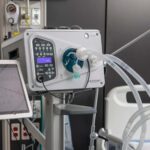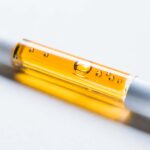Prime Medical will use its gene editing platform to correct the gene mutations that lead to alpha-1 antitrypsin deficiency (AATD) lung disease and liver disease.
RT’s Three Key Takeaways:
- New Gene Editing Approach for AATD – Prime Medicine has introduced a preclinical program using its Prime Editing platform to develop a one-time, curative gene therapy for alpha-1 antitrypsin deficiency (AATD).
- Promising Preclinical Results – Initial in vivo data in humanized mice showed up to 72% precise correction of the SERPINA1 gene mutation, restoring over 95% of serum AAT to normal levels without off-target effects.
- Path to Clinical Trials – With no existing curative treatments for AATD, Prime Medicine aims to file for clinical trials in 2026, with potential clinical data on this and its Wilson’s Disease program expected in 2027.
Prime Medicine Inc has unveiled a preclinical program for the treatment of alpha-1 antitrypsin deficiency (AATD) using the company’s gene editing platform, according to a company news release.
The company says it is deploying its proprietary Prime Editing platform, a gene editing technology, to develop a new class of differentiated one-time curative genetic therapies. It believes Prime Editing has the ability to correct disease-causing mutations with high efficiency, while minimizing unwanted DNA modifications.
The company also shared the first in vivo preclinical data for its AATD program. According to initial in vivo data, LNP delivery of Prime Editors targeting the Pi*Z (E324K) mutation demonstrated up to 72% precise correction of the SERPINA1 gene in the hepatocytes of fully humanized mice. This restored over 95% of serum AAT to the corrected isoform, with healthy AAT (M-AAT) protein in the serum at levels well above 20µM, indicating restoration of M-AAT to normal levels in a humanized mouse model, the company reported.
“These data reinforce the potential of Prime Editing to restore the disease-causing mutation back to wild-type and address the underlying pathology of both lung and liver manifestations of AATD, without the risk of bystander edits or detectable off-target edits,” said Keith Gottesdiener, MD, president and CEO of Prime Medicine
There are currently no disease-modifying or curative treatments approved for the approximately 200,000 people in the United States and European Union with AATD, and many patients ultimately progress to liver failure or severe lung disease, eventually resulting in premature death.
Prime Medicine expects to file an investigational new drug (IND) and/or clinical trial application (CTA) in mid-2026.
“We are excited to announce our AATD program, the second high-value program to emerge from our liver franchise, and the second liver program that we expect to advance into the clinic next year,” said Keith Gottesdiener, M.D., President and Chief Executive Officer of Prime Medicine. “This program exemplifies our strategy of using our proprietary, modular liver LNP to accelerate the development of new Prime Editors, as well as our ability to leverage learnings, regulatory frameworks and manufacturing synergies to efficiently advance our efforts. We look forward to progressing our AATD and Wilson’s Disease programs toward clinical data in 2027, where we hope to demonstrate Prime Editing’s best-in-class potential across two of the largest genetic liver diseases.”










